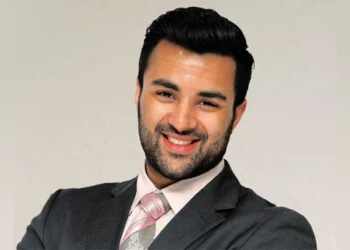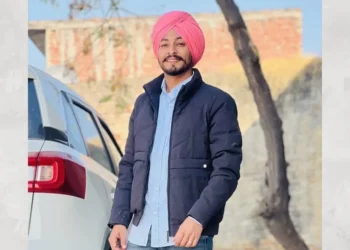Fatou Baldeh is a Gambian-born human rights activist, known globally for her steadfast work in combating female genital mutilation (FGM) and advocating for gender equality. A survivor of FGM herself, Fatou has dedicated her life to not only raising awareness of this harmful practice but also empowering women and girls to break free from cycles of abuse and cultural oppression.
Key Information
| Attribute | Details |
| Full Name | Fatou Baldeh |
| Date of Birth | December 1983 |
| Place of Birth | The Gambia |
| Nationality | Gambian |
| Current Residence | Banjul, The Gambia |
| Religion | Muslim (publicly acknowledged in various forums) |
| Marital Status | Not publicly disclosed |
| Children | Not publicly disclosed |
| Languages Spoken | English, Wolof |
| Education | – BSc in Psychology and Health, University of Wolverhampton |
| – MSc in Sexual and Reproductive Health, Queen Margaret University, Edinburgh | |
| Occupation | Human Rights Activist, Public Speaker, NGO Founder |
| Known For | Advocacy against Female Genital Mutilation (FGM), Women’s Rights Activism |
| Years Active | 2007–present |
| Organization Founded | Women in Liberation and Leadership (WILL), 2018 |
| Previous Roles | Advocacy Officer at Dignity Alert Research Forum (DARF), Scotland |
| Key Advocacy Areas | FGM Eradication, Gender Equality, Reproductive Health, Leadership for Women |
| Awards & Honors | – International Women of Courage Award (2024) |
| – TIME Women of the Year (2025) | |
| – Member of the Order of the British Empire (MBE) | |
| Major Speeches/Events | Scottish Parliament (2014), UN Conferences, US State Department Events |
| Notable Campaigns | Defense of FGM ban in The Gambia (2024–2025) |
| Social Media Presence | Limited, professional work mainly promoted through NGO channels |
| Personal Motivation | Survivor of FGM, dedicated to ending harmful cultural practices |
Early Life and Personal Journey
Born in The Gambia in December 1983, Fatou’s early life was marked by hardship. At the age of seven, she underwent the painful and life-altering procedure of female genital mutilation. This traumatic experience, often deemed a rite of passage in many communities, left a deep emotional scar. However, it also sparked an unwavering commitment to fight for the rights and well-being of girls who face similar traditions.
Fatou grew up in a society where FGM was a common cultural practice, yet it also left her feeling alienated and determined to make a change. Moving to the United Kingdom as a young adult, Fatou’s education and personal experiences sparked the fire of her activism. Her journey from a victim to a survivor and then an advocate became a symbol of resilience and hope for many others in her community.
Education and Formation
Fatou Baldeh’s journey into activism was shaped not only by personal experience but by her academic achievements. She obtained her Bachelor’s degree in Psychology and Health from the University of Wolverhampton, where she began to understand the psychological and physical impacts of harmful cultural practices like FGM.
She furthered her education by pursuing a Master’s degree in Sexual and Reproductive Health from Queen Margaret University in Edinburgh. This academic background equipped her with both the knowledge and the tools to challenge FGM through policy, community engagement, and awareness campaigns.
Career and Activism
Fatou’s early career was marked by her involvement in Dignity Alert Research Forum (DARF) in Edinburgh, Scotland, where she worked alongside other passionate advocates to address gender-based violence and promote human rights. During this time, she directly contributed to policy debates and strategies to prevent FGM in diaspora communities in the UK.
In 2014, Fatou had the opportunity to speak before the Scottish Parliament’s Equal Opportunities Committee, where she gave crucial testimony on the persistence of FGM among African diaspora communities in the UK. This was a pivotal moment in her career, giving her the platform to speak out about the harmful practice on an international stage.
Her time in the UK deeply influenced her work, but her return to The Gambia in 2018 marked the beginning of her most significant and impactful work yet. In the same year, Fatou founded Women in Liberation and Leadership (WILL), a non-governmental organization dedicated to ending FGM, empowering women through education, and fostering leadership within local communities.
WILL’s mission goes beyond simply raising awareness it is focused on grassroots mobilization, advocacy, and policy change, helping shift mindsets and promote long-term systemic change in The Gambia and neighboring regions. Fatou also works with local authorities and international organizations to ensure that laws and policies addressing FGM are enforced.
Recognition and Global Impact
Fatou’s life work has garnered her international recognition. In 2024, she received the International Women of Courage Award from the U.S. Department of State, honoring her courage in the face of adversity and her relentless dedication to women’s rights.
She has also been named one of TIME Magazine’s Women of the Year in 2025, an acknowledgment of her pivotal role in the fight against gender violence and FGM. In recognition of her leadership, Fatou was invited to speak at the United Nations and various international forums, where she continues to urge policymakers, activists, and citizens to take concrete steps toward ending gender-based violence.
Advocacy for Legislative Change
Fatou has been at the forefront of several legislative initiatives that protect women and girls from FGM. In 2024, she played a key role in preventing a bill in The Gambia’s Parliament from overturning the ban on FGM, ensuring that the country’s commitment to ending the practice remains intact. Her advocacy efforts helped preserve crucial laws that safeguard the rights and health of Gambian girls.
Additionally, she has led awareness campaigns that have reached thousands of Gambian women and girls, ensuring that they understand their rights and have access to education and support if they choose to leave behind harmful cultural practices.
Philosophy and Legacy
Fatou’s philosophy is grounded in the belief that women’s voices are essential to societal change. She advocates for empowering women from all walks of life, especially survivors of FGM, to step into leadership roles. For Fatou, the fight for women’s rights is not just about addressing the physical impacts of harmful practices but also about changing societal attitudes and creating opportunities for women to thrive.
Her work goes beyond simply eradicating FGM. Fatou aims to ensure that women have access to safe spaces, healthcare, education, and the tools to take on leadership roles in their communities. Her commitment to gender justice and human rights resonates not only in The Gambia but across the world.
Key Contributions and Legacy
- Women in Liberation and Leadership (WILL): An organization founded by Fatou to advocate against FGM, promote leadership among women, and provide resources for those affected.
- Fighting Legislative Repeal of FGM Ban: Played a central role in defending The Gambia’s FGM ban in the face of legislative efforts to reverse it.
- Global Recognition: Honored as a TIME 100 honoree and International Women of Courage Award recipient.
- Education and Advocacy: Fatou conducts seminars and works with policymakers worldwide to eliminate FGM and promote gender equality.
Interesting Facts about Fatou Baldeh
- FGM Survivor Turned Advocate: Fatou underwent female genital mutilation (FGM) at the age of 7, which later became a driving force behind her advocacy for women’s rights and the fight against FGM.
- Education in Health and Rights: Fatou holds both a BSc in Psychology and Health and a Master’s in Sexual and Reproductive Health, giving her both academic and practical expertise in gender justice.
- Global Recognition: In 2024, she was honored with the International Women of Courage Award, presented by the U.S. Secretary of State, recognizing her dedication to ending FGM and improving the lives of women and girls.
- Founder of WILL: In 2018, she founded Women in Liberation and Leadership (WILL), an organization focused on eradicating FGM and empowering women through education, leadership development, and advocacy.
- Public Speaking: Fatou has spoken at major international forums, including the United Nations, to raise awareness about FGM and advocate for policy reforms to protect girls and women worldwide.
- Changing Legislation: She played a critical role in blocking a bill in The Gambia’s Parliament that aimed to repeal the country’s law against FGM, securing important legal protections for girls.
- Time 100 Recognition: In 2025, she was named one of TIME Magazine’s Women of the Year, acknowledging her global influence and impact on the fight for gender equality and human rights.
- Advocacy in Scotland: Fatou previously lived in Scotland, where she contributed to efforts in the UK to raise awareness and develop legal frameworks to address FGM within diaspora communities.
- Empowerment Through Education: She strongly believes that education is key to breaking cycles of violence and oppression. Fatou works with communities in The Gambia and globally to ensure that women and girls have access to education, healthcare, and the tools to lead.
- Public Policy Impact: Fatou has influenced key policies in The Gambia, advocating for legal protection against FGM and gender violence, while also promoting cultural shifts toward women’s empowerment.
Read more biographies and success stories of business leaders, celebrities, healthcare professionals etc. at Leader Biography.






